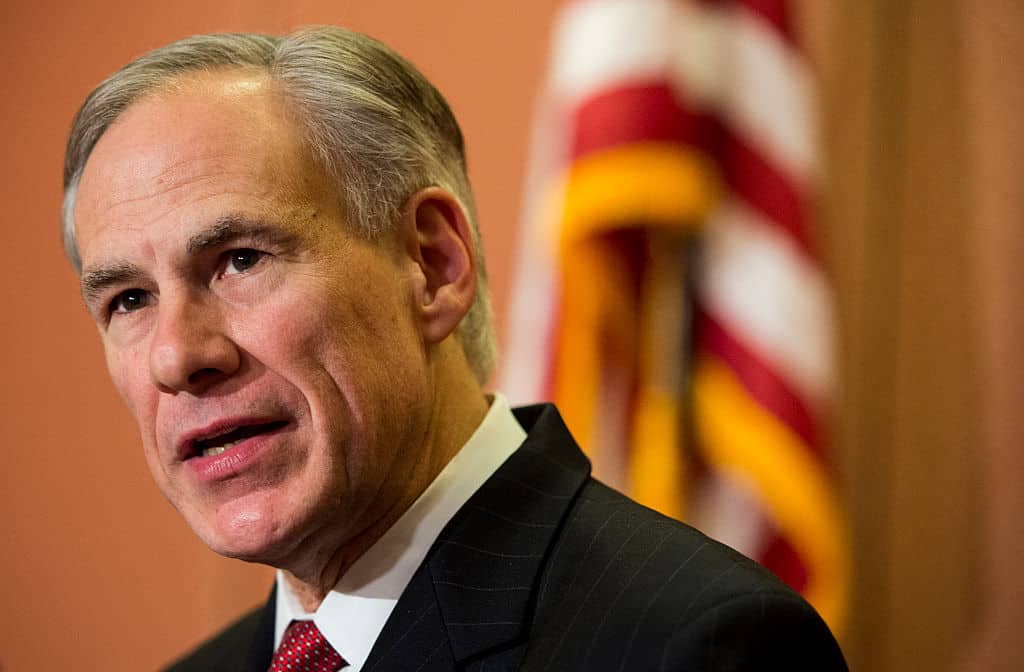Gov. Greg Abbott recently released his proposed budget for the 2022-2023 biennium. The budget proposal mostly focuses on distributing federal funding for COVID-19 as well as the emergency items listed in the governor’s “State of the State” address last week.
Unsurprisingly, Abbott’s desired budget makes no mention of climate change. It does, however, include a request for the legislature to deliver a total of $150 million to the state’s disaster fund — the largest sum ever requested by Abbott during his tenure.
If the legislature fulfills Abbott’s request, it would also be the largest sum appropriated to the state disaster fund since at least 1997.
Abbott’s 37-page budget proposal is not a bill. It is a detailed wishlist for the state legislature; both the state House and Senate have recently released budget estimates of their own that will serve as a starting point for the state’s budget. The Texas House is pitching a much smaller figure for disaster funding, $30 million, while the Texas Senate appears more willing to approach Abbott’s desired figure and is pitching $110 million for the disaster fund.
The state disaster fund operates through grants and assistance programs within the governor’s office and is used by state agencies and local governments to pay for disaster-related expenses and recovery efforts for hurricanes, wildfires, and most recently, the pandemic.
The governor requested $100 million for the state disaster fund in his 2020-21 budget proposal and $105.4 million in his 2018-19 budget proposal. Lawmakers have accommodated or exceeded those requests each time. In 2017, the legislature authorized $110 million to the state’s disaster fund for the 2018-19 biennium. In 2019, lawmakers injected another $100,000,000 into the disaster fund via a supplemental appropriations bill.
Texas entered the 2020-21 biennium with $183 million in the state’s disaster fund, according to the Legislative Budget Board.
This session, Abbott is asking the legislature to increase the budget of the disaster fund by once again tapping into the state’s Economic Stabilization Fund, currently holding $10.7 billion in rainy day funds.
If lawmakers follow through, it would be the third session in a row lawmakers use the rainy day fund to expand the state disaster fund. The rainy day fund has historically been used for a variety of different appropriations, from corrections to public education, but disaster relief has become a more frequent reason for withdrawals in recent years.
The increase in the state’s disaster fund mirrors the budget growth of the FEMA-operated Disaster Relief Fund, which has also received record-breaking funding from Congress in recent years (most of it has gone to Texas).
This is to be expected as both the frequency and cost of billion-dollar weather disasters mount in Texas and the rest of the globe due to human-caused climate change.
Adrian Shelley, the director of the Texas office for the government watchdog group Public Citizen, said Abbott’s budget was like closing the stable door after the horse already bolted.
“[Abbott] would pay for disaster recovery but not sensible planning to mitigate the worst impacts of the climate crisis,” Shelley told the Signal.
“It’s not enough to fund recovery after disasters strike,” Shelley said. “Texas must begin planning for our new climate reality. Governor Abbott should give relevant state agencies — including the Texas Department of Agriculture, Texas Commission on Environmental Quality, and Texas Water Development Board — the money they need to assess how the climate crisis will affect their operations and adjust accordingly.”
A similar effect would be achieved by a statehouse bill to study the impact of climate change in Texas. The legislation was refiled by Rep. Rafael Anchia this year after it was left to die in committee last session.
Emma Pabst, Global Warming Solutions Advocate with Environment Texas, said Abbott needed to meet with climate scientists to chart a course for Texas in the fight against climate change.
“Texas is getting hotter, hurricanes are getting stronger, and droughts are getting longer,” Pabst said. “Our state is sinking under the devastating effects of climate change, but instead of working to stop the flood, Governor Abbott is trying to bail us out with a teaspoon.”
“Being a Texan means embracing big ideas — getting down and dirty to accomplish the task at hand,” Pabst said. “To ensure that Texas has a safe future with a livable climate, Governor Abbott must embrace sound climate policy.”
Photo: Bill Clark/CQ Roll Call
Fernando covers Texas politics and government at the Texas Signal. Before joining the Signal, Fernando spent two years at the Houston Chronicle and previously interned at Houston’s NPR station News 88.7. He is a graduate of the University of Houston, Jack J. Valenti School of Communication, and enjoys reading, highlighting things, and arguing on social media. You can follow him on Twitter at @fernramirez93 or email at fernando@texassignalarchive.com





